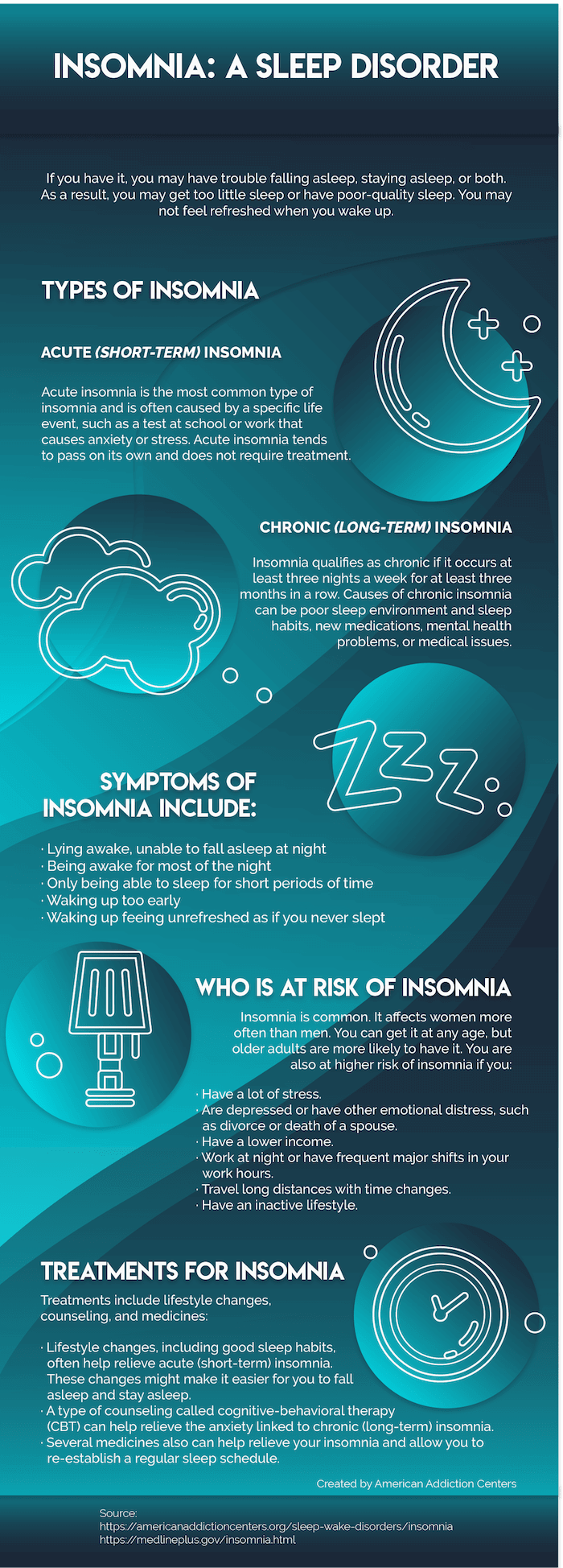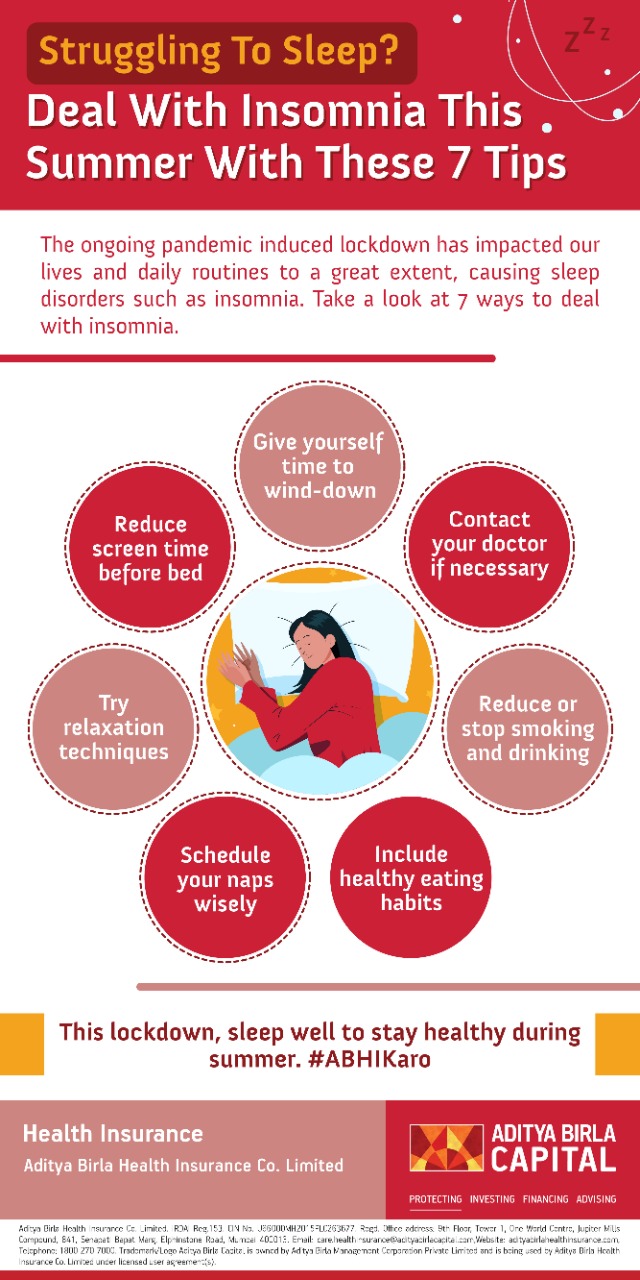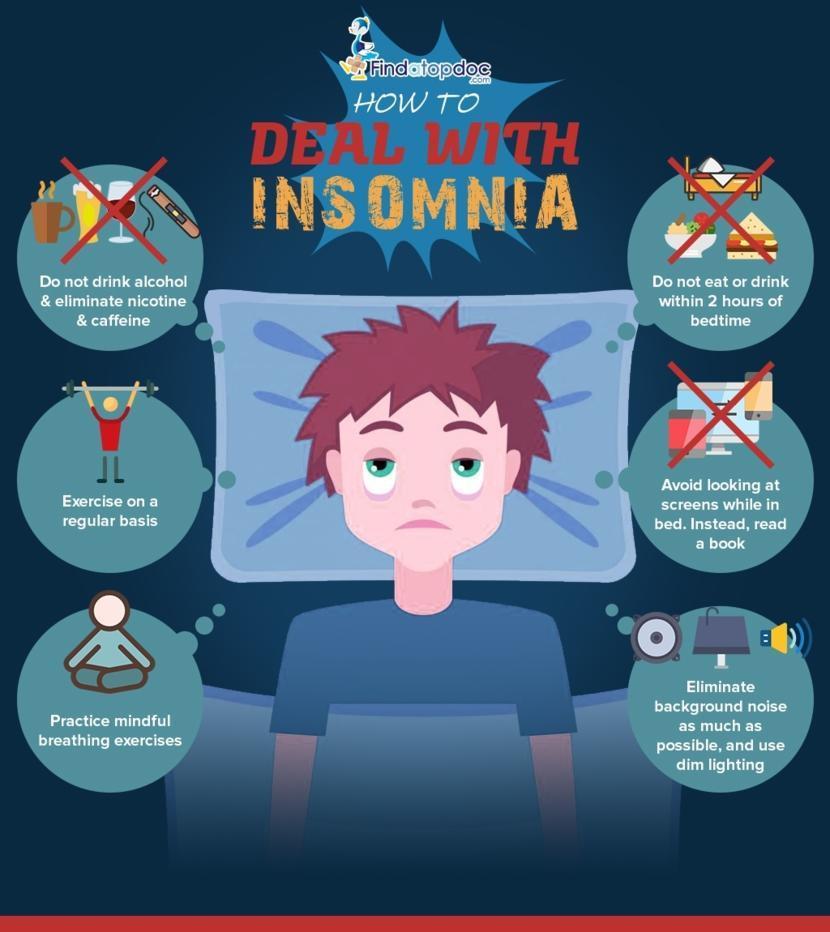To deal with insomnia, establish a consistent sleep routine and create a calm sleep environment. Do you find yourself struggling to fall asleep or stay asleep?
Do you often feel tired during the day due to lack of quality sleep? If so, you may be experiencing insomnia, a common sleep disorder. Insomnia can significantly impact your overall well-being and quality of life. However, there are effective strategies to help you combat this sleep disorder.
We will explore practical tips and techniques that can aid in alleviating insomnia, allowing you to enjoy restful and rejuvenating sleep. By implementing these strategies into your daily routine, you can overcome insomnia and experience improved sleep and enhanced vitality.

Credit: americanaddictioncenters.org
Understanding Insomnia
Insomnia is a common sleep disorder that affects millions of people worldwide. This condition is characterized by difficulty falling asleep or staying asleep, resulting in poor quality sleep and daytime fatigue.
To understand insomnia, it is important to know what it is. Insomnia refers to the inability to initiate or maintain sleep, despite having the opportunity to do so. It can be a temporary issue or a chronic problem that lasts for weeks, months, or even years.
There are various causes of insomnia, including stress, anxiety, depression, certain medical conditions, medications, and unhealthy sleep habits. Identifying the underlying cause is crucial in determining the appropriate treatment for each individual.
Insomnia can be categorized into three types based on its duration: transient insomnia (lasting less than a week), short-term insomnia (lasting one to three weeks), and chronic insomnia (persisting for more than three weeks).
| Type of Insomnia | Description |
|---|---|
| Transient Insomnia | Lasts less than a week |
| Short-term Insomnia | Lasts one to three weeks |
| Chronic Insomnia | Persists for more than three weeks |
Understanding the different types of insomnia and their causes can help individuals seek appropriate treatment and make lifestyle changes to improve their sleep quality. If you are struggling with insomnia, it is advisable to consult a healthcare professional for guidance and support.

Credit: www.adityabirlacapital.com
Managing Insomnia Naturally
Managing Insomnia NaturallyEstablishing a bedtime routine is essential in managing insomnia naturally. Going to bed and waking up at the same time every day helps regulate the body's internal clock. Creating a sleep-friendly environment is also crucial. Ensure that your bedroom is cool, dark, and quiet, promoting relaxation. Remove any distractions, such as electronic devices, and consider using earplugs or an eye mask if necessary. Practicing relaxation techniques can also aid in falling asleep faster and improving sleep quality. Techniques such as deep breathing, progressive muscle relaxation, and meditation can help calm the mind and prepare the body for sleep. Additionally, avoiding caffeine and alcohol close to bedtime, along with engaging in regular exercise during the day, can contribute to better sleep. By incorporating these strategies into your daily routine, you can effectively manage insomnia naturally.
Seeking Professional Help For Insomnia
Dealing with insomnia can be frustrating. Luckily, there are professional help options to guide you through this challenging experience.
Consulting A Physician
When facing chronic sleep issues, it is essential to consult a physician. They can assess your condition and provide accurate guidance for managing insomnia.
Cognitive Behavioral Therapy For Insomnia
Cognitive Behavioral Therapy (CBT) is widely regarded as an effective treatment for insomnia. This therapy focuses on changing harmful sleep behaviors and improving sleep patterns.
Medication Options
Another approach to managing insomnia is through medication. Doctors may prescribe sleep aids or suggest over-the-counter options to help regulate your sleep cycle.

Credit: www.findatopdoc.com
Frequently Asked Questions For How To Deal With Insomnia
Can Insomnia Be Cured Naturally?
Yes, insomnia can be treated naturally through various methods such as establishing a regular sleep schedule, practicing relaxation techniques like meditation and deep breathing, avoiding caffeine and electronic devices before bed, and creating a comfortable sleep environment.
What Are The Common Causes Of Insomnia?
The common causes of insomnia include stress, anxiety, depression, certain medical conditions, medications, caffeine or alcohol consumption, irregular sleep schedule, and poor sleep habits.
How Can I Improve My Sleep Quality?
To improve sleep quality, it is important to maintain a consistent sleep schedule, create a sleep-friendly environment by keeping the bedroom cool, dark, and quiet, limit exposure to electronic devices before bed, avoid napping during the day, and engage in regular exercise but not too close to bedtime.
Conclusion
Addressing insomnia requires a personalized approach that targets both the mind and body. By implementing lifestyle changes, such as establishing a consistent sleep schedule and creating a comfortable sleep environment, individuals can significantly improve their sleep quality. Additionally, exploring relaxation techniques and seeking professional help when necessary can offer profound benefits.
Remember, overcoming insomnia is possible with dedication and a holistic approach to sleep health. Restful nights await!
Comments
Post a Comment